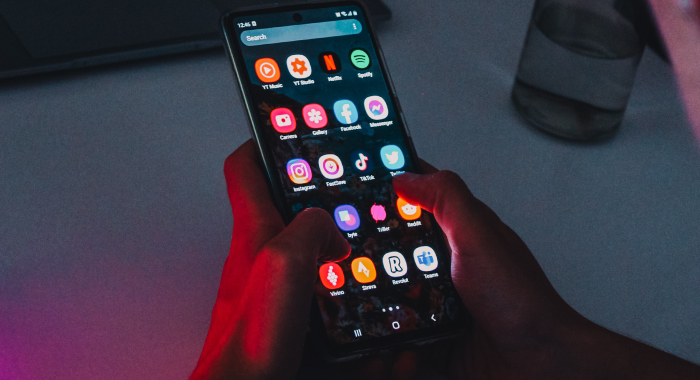For most of us, imagining life without a cell phone is pretty much impossible. Our phone connects us to family and friends, to work and entertainment, to travel and shopping, and so much more – but at the same time, everything that makes our cell phone so crucial also makes it the perfect avenue for scammers to commit fraud.
If you’re concerned about safety while using a cell phone, read on for five steps to help you be smarter about phone usage and avoid a scam.
Uninstall Old Apps
Cell phone full of apps you no longer use? You might think there’s no harm in hanging on to old apps, but in reality, forgotten software is often unpatched – making it easier for criminals to run malware on your device. Remember: your phone is only as secure as your least secure app. A hacker only needs one gateway to access all the data on your phone. It’s always better to be safe than sorry, so take the time to uninstall apps you never open. If you find you need them in the future, you can always reinstall them.
Be Mindful of Social Media Sharing
Scammers are on the lookout for personal identifying information which they can use to commit identity theft. Social media provides a plethora of this kind of personal data, making it essential that you monitor your privacy settings as much as possible to keep your information safe. Unsure what’s visible to friends and what anyone can see? A great tip is to use incognito browsing to search for yourself on social media sites and check what information is visible to the public. Depending on your current settings, you might want to restrict what you’re tagged in on Facebook, limit activity notifications on LinkedIn, or make your Twitter account private.
Beware Phishing Texts and Calls
Phishing is a common scam in which the fraudster will pretend to be someone else, in order to persuade their victim to reveal personal or financial information, or download malware. Beware of answering your phone if its an unknown number, but also remember that scammers can spoof their outgoing number to make it look like the call is coming from a person in the local area, a reputable business or government agency, or even someone you know personally. Texts and social media messages can also contain phishing messages, so be cautious about opening messages from unknown numbers and never download anything or click on a link from a message you don’t trust.
Check Privacy and Security Settings
All apps have different privacy and security settings, making it tricky to remember how your information is being used and if you have the right settings in place. A great online resources is the National Cyber Security Alliance. Their website provides a comprehensive list of links to privacy settings for some of the most common applications and online services, so you can review all these various policies. If you see that an app is storing or sharing your information in a way that makes you uncomfortable, go to the app on your phone to adjust your settings, or consider deleting the app altogether.
Use Strong Passwords
You phone functions as a gateway to an almost unfathomable amount of data; on the physical device itself as well as across the cloud. There are personal details like your address and birthday; sensitive information like your social security number and passwords; financial records of your credit card number, bank accounts and credit score; and on and on. All this data can be used by a scammer to impersonate you or hack into your other platforms; and, it can be sold to third parties. Therefore, one of the most essential – and simple! – acts you can take to protect yourself is to always password-protect your device, and to choose strong passwords for each app. Consider using a password manager like Keeper or LastPass if you’re concerned about creating the right passwords and remembering them.





